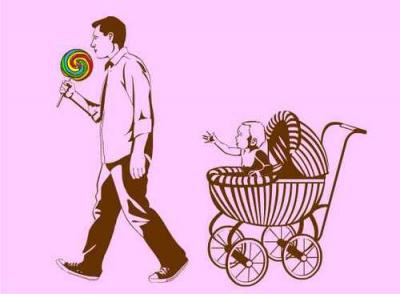Incentives are all the rage: employee bonus pay, app badges, student grades, and even lunch with President Obama. Despite their widespread use, most research finds that incentives are terrible at improving performance in the long-run on anything but mindless rote tasks, because the fixation on prizes clouds our creative thinking (video explanation below). However, a new Harvard study of teachers found that a novel approach to incentives could dramatically improve student performance: give teachers a reward upfront and threaten to take it away if performance doesn’t actually improve. Exploiting the so-called “loss-aversion” tendency could open the door to creative incentivizing for software designers and managers.
Harvard University’s Ronald Fryer and his colleagues explain that, in education, pay-for-performance has a dismal record of improving student outcomes. Teachers who were offered sizable bundles of cash (up to $15,000) didn’t fare any better at helping their students than teachers who worked simply out of the goodness of their impoverished hearts. In india, teachers show modest gains the first year incentives, but the effect largely drops off a cliff the next year.
However, humans process loss differently gain. For instance, one study showed that people will pay more than twice as much money to keep a coffee mug they were given beforehand then to acquire it in the first place. The idea behind the “endowment effect“, popularized by Amos Tversky and Daniel Kahneman, is that people become psychologically territorial about their own stuff, and begin imagining all the ways they’ll use their new treasure once it’s in their hands. The research has been widely replicated and applied, such as in a Chinese factory to improve worker productivity.
The Harvard school experiment applied the logic in pretty much the same way: teachers were randomly selected to receive a bonus either at the beginning or end of the year; those getting the check up front (the treatment group) had to give it back if student performance didn’t improve as expected. Teachers could earn up to $8,000, depending on the level of improvement. The experimental group was cut a check for the expected amount ($4,000) upfront and had to give back or add to that amount depending on the actual performance at the end of the year.
The results were impressive by education standards: up to 10 percentile points on average (that’s 0.33 standard deviation units, for you statistic nerds).
The research holds exciting possibilities for business. Why not hand out bonus pay at the beginning of the year? Or, maybe give out restaurant discounts for a month, and revoke it if users don’t check-in on Foursquare each time they come.
The possibilities are endless and we’d love to hear your ideas. How do you use incentives in your organization? How could someone use loss-aversion to change the way incentives are given?
